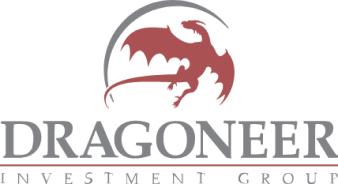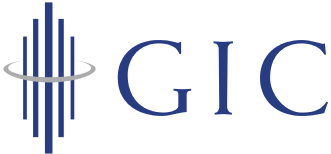Analyze Workforce Skills with Aura Intelligence
Leverage Skills Data for Strategic Insights






.png?width=600&height=141&name=output-onlinepngtools%20(1).png)
.png?width=436&height=134&name=output-onlinepngtools%20(2).png)






.png?width=600&height=141&name=output-onlinepngtools%20(1).png)
.png?width=436&height=134&name=output-onlinepngtools%20(2).png)
Skills Determine Success
A Data-Driven Approach to Developing and Understanding Workforce Skills and Organizational Effectiveness
What are Skills in the Workforce?
Skills encompass a wide range of professional and personal abilities that employees bring to their roles. These can be hard skills like programming languages, data analysis, project management skills, and soft skills such as communication, leadership, and emotional intelligence. Understanding which skills are most in demand and how to cultivate these skills is essential for employers and employees. Whether assessing job descriptions for the right fit or refining your resume skills section, having the right skills can make all the difference in attracting a hiring manager's attention.
Understanding skills is also pivotal for organizational success, as aligning individual skills with company goals enhances talent optimization. With Aura's skills data, organizations can better design roles, identify talent gaps, and improve organizational effectiveness by ensuring that their workforce's skills are fully utilized and strategically aligned.
Skills and Their Strategic Value in the Modern Workforce
The significance of job skills has never been more pronounced. From computer skills to foreign languages, companies across different industries increasingly emphasize a balance of hard and soft skills. For consultants and private equity professionals, analyzing a workforce’s skill set is key to making data-driven decisions. With Aura’s comprehensive skills intelligence and analysis, consultants can identify trends in industry skills and understand how to drive workforce efficiencies across many industries.
This skill analysis goes beyond individual capabilities—it's also about understanding the broader picture of how skills contribute to organizational health. From talent development and succession planning to improving workplace culture and enhancing team collaboration, having visibility into your company's skills ecosystem allows for better organizational design and more effective talent management strategies.
Four Pillars of Workforce Skills
To better understand the dynamic range of job skills, we classify them into four key pillars, each vital in shaping workplace culture and organizational success. Each is important to measure and promote for optimal engagement and effectiveness.
1. Core Competencies
These are the specific, technical abilities required for a role, often called hard skills. Technical skills are crucial in the job market, as many roles demand a high level of digital skills. Examples include programming languages like Python or Java, data analysis skills in Excel or SQL, graphic design tools like Adobe Creative Suite, and project management skills with tools like MS Office. Aura’s analytics help identify essential industry skills and assess how they align with emerging industry trends.
Organizations can leverage insights on core competencies to optimize roles and align skillsets with strategic objectives. This enhances organizational effectiveness and ensures that the talent pool is positioned to achieve business goals.
2. Interpersonal and Communication Skills
Interpersonal skills are all about building strong relationships and navigating social dynamics in the workplace. These include written communication, oral communication skills, active listening, problem-solving skills, and emotional intelligence. Employers value good communication skills because they influence customer satisfaction, workplace culture, and the ability to lead or be part of a team.
By tracking the growth and development of interpersonal skills within your workforce, organizations can promote more cohesive teams, better collaboration across departments, and ultimately a more resilient organizational culture.
3. Cross-functional Skills
Cross-functional skills are invaluable assets that can drive performance across multiple organizational roles and departments. Core competencies like time management, critical thinking, and problem-solving enhance flexibility and enable employees to adapt seamlessly to changing business needs. Enterprises benefit greatly from fostering these skills, as they ensure a workforce that is agile and ready to tackle challenges across various functions, aligning with evolving industry demands.
4. Flexibility
Flexibility and adaptive qualities form a foundational skill set that enables employees to thrive in dynamic environments. These competencies go beyond simply handling change; they involve proactively anticipating shifts, recalibrating strategies, and embracing new approaches with a growth mindset. The ability to pivot is no longer a soft skill—it's a business imperative.
Organizations that cultivate flexibility within their teams foster an environment of continuous learning and improvement, allowing them to stay ahead of market disruptions and innovate effectively. An adaptable workforce can seamlessly navigate organizational restructuring, technological advancements, and fluctuating market demands, ensuring business continuity and strategic alignment. In essence, the value of these adaptive qualities lies in their capacity to turn challenges into opportunities, enhancing the organization's overall agility and competitiveness.
The Strategic Role of Workforce Skills in Organizational Success
The ability to understand and leverage workforce skills is a strategic imperative for organizational success. Skills aren't just a metric for individual performance—they are the foundation for building resilient teams, optimizing talent strategies, and achieving long-term business objectives.
Data-Driven Insights for Strategic Workforce Management
At Aura, we empower executives and consultants with data-driven insights into workforce skills. By analyzing millions of data points across industries, geographies, and competitors, our platform provides a comprehensive view of skill trends, enabling organizations to identify gaps, forecast future needs, and align workforce capabilities with strategic goals.
Hard Skills, Soft Skills, and Competitive Advantage
From technical proficiencies in data analysis and project management to interpersonal skills like leadership and collaboration, a well-rounded skill set is key to driving performance and innovation. Aura's workforce intelligence platform not only maps these skills within your organization but also benchmarks them against competitors to identify areas for improvement and opportunities for differentiation.
Why Skills Matter at the Strategic Level
For executives and strategic managers, understanding the distribution and evolution of workforce skills provides actionable insights into organizational strengths and vulnerabilities. Skills data can inform:
- Talent Development: Identify high-priority skill gaps and design targeted upskilling programs.
- Strategic Planning: Align skills with future business needs to maintain a competitive edge.
- M&A and Growth Decisions: Evaluate the workforce capabilities of potential acquisition targets.
Future-Proofing Your Workforce
With rapid shifts in technology and market demands, adaptability and future-focused skills have become critical. Aura’s platform uses advanced AI to predict emerging skill requirements, enabling organizations to proactively prepare for change. By aligning workforce strategies with evolving skill trends, leaders can ensure their organizations remain agile and competitive.
FAQs on
Relevant Skills and Organizational Success
How do skills impact overall organizational effectiveness?
Skills are directly tied to how effectively a company operates. The right mix of core competencies, transferable skills, and soft skills fosters better teamwork, efficient processes, and organizational effectiveness. Aura’s skill analytics platform provides organizations with visibility into skill distributions and talent gaps, enabling strategic planning and talent development for better business performance.
What role do skills play in talent optimization?
Talent optimization involves aligning employee skills, strengths, and roles to maximize performance and productivity. Identifying the most relevant skills for each role and ensuring they match organizational goals are critical. With Aura, organizations can actively track skill growth, self-motivation, and development opportunities, ensuring a perfect alignment between skills and business needs.
How can Aura help build a culture of continuous learning and skill development?
Aura’s insights into industry trends and emerging skill needs allow companies to develop their workforce proactively. By understanding the skill set of their team, organizations can create personalized development plans, encourage continuous improvement, and build a culture that promotes learning and adaptability.
What are the key indicators of an effective workforce?
An effective workforce is characterized by a blend of soft and hard skills, high emotional intelligence, strong work ethic, and a willingness to learn new skills. Workforce analytics tools provide a comprehensive view of these metrics, allowing companies to enhance organizational effectiveness through targeted training, talent development, and workforce planning.
Unlock the Full Potential of Your Organization with Aura
Ready to transform your workforce? Leverage the power of data and insights with our innovative workforce analytics software.
